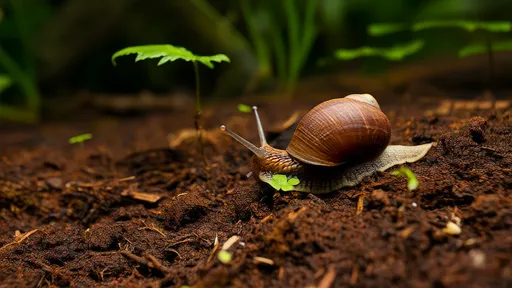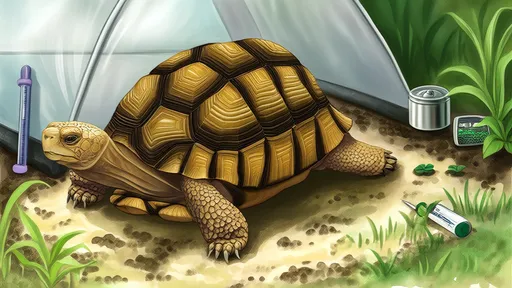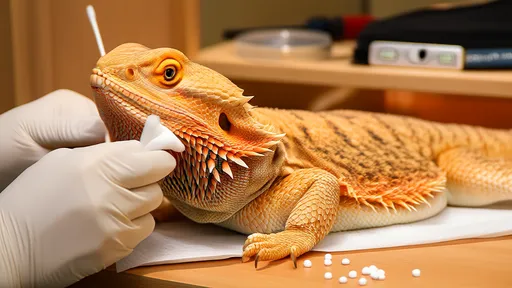Bearded dragons, known for their docile nature and striking appearance, have become increasingly popular as pets. However, like all reptiles, they are susceptible to parasitic infections that can compromise their health. Preventing parasites in these creatures requires a combination of proper husbandry, hygiene, and regular veterinary care. Understanding the risks and implementing preventive measures can ensure your bearded dragon thrives in captivity.
Parasites are a common issue in captive bearded dragons, often introduced through contaminated food, substrate, or poor enclosure hygiene. Internal parasites, such as pinworms and coccidia, can cause weight loss, lethargy, and digestive disturbances if left untreated. External parasites, like mites, may lead to skin irritation and stress. Recognizing the signs early and taking proactive steps can prevent severe infestations.
One of the most effective ways to prevent parasites is maintaining a clean enclosure. Regular spot cleaning to remove feces and uneaten food reduces the risk of bacterial and parasitic growth. A deep clean of the entire habitat, including disinfecting decor and replacing substrate, should be done monthly. Avoid using substrates that retain moisture, as damp environments encourage parasite proliferation. Paper towels, reptile carpet, or tile are safer alternatives.
Feeding your bearded dragon a balanced diet also plays a crucial role in parasite prevention. Live insects should be gut-loaded with nutritious foods before being offered to your pet, ensuring they provide optimal nutrition. Additionally, insects should be sourced from reputable suppliers to minimize the risk of introducing parasites. Freezing feeder insects for 48 hours before feeding can kill any potential parasites, though this method is not foolproof for all species.
Quarantining new bearded dragons before introducing them to an established collection is another critical step. Even seemingly healthy reptiles can carry parasites that may spread to others. A quarantine period of at least 30 days allows time to observe the new arrival for any signs of illness or parasitic infection. Fecal exams during this period can help detect hidden issues before they become a problem.
Routine veterinary check-ups are essential for early detection and treatment of parasites. A reptile-savvy veterinarian can perform fecal tests to identify internal parasites that may not be visibly apparent. Annual exams are recommended, but more frequent visits may be necessary if your bearded dragon shows symptoms such as diarrhea, lack of appetite, or unusual behavior. Early intervention can prevent minor issues from escalating into serious health concerns.
Hydration and proper humidity levels in the enclosure also contribute to parasite prevention. Dehydrated bearded dragons are more susceptible to infections, including parasitic ones. Providing a shallow water dish for drinking and occasional soaking helps maintain hydration. However, excessive humidity can promote bacterial and fungal growth, so balance is key. Monitoring humidity with a reliable gauge ensures conditions remain optimal.
Finally, minimizing stress is an often-overlooked aspect of parasite prevention. Stressed reptiles have weakened immune systems, making them more vulnerable to infections. Ensuring your bearded dragon has adequate space, proper lighting, and a consistent temperature gradient reduces stress. Handling should be kept to a minimum, especially during periods of adjustment or illness, to avoid unnecessary strain on their health.
By implementing these preventive measures, bearded dragon owners can significantly reduce the risk of parasitic infections. A combination of cleanliness, proper nutrition, veterinary care, and stress management creates a healthy environment where these fascinating reptiles can thrive. Staying vigilant and proactive ensures your pet remains happy and parasite-free for years to come.

By /Jun 28, 2025

By /Jun 28, 2025

By /Jun 28, 2025

By /Jun 28, 2025

By /Jun 28, 2025

By /Jun 28, 2025

By /Jun 28, 2025

By /Jun 28, 2025

By /Jun 28, 2025

By /Jun 28, 2025

By /Jun 28, 2025

By /Jun 28, 2025

By /Jun 28, 2025

By /Jun 28, 2025

By /Jun 28, 2025

By /Jun 28, 2025

By /Jun 28, 2025